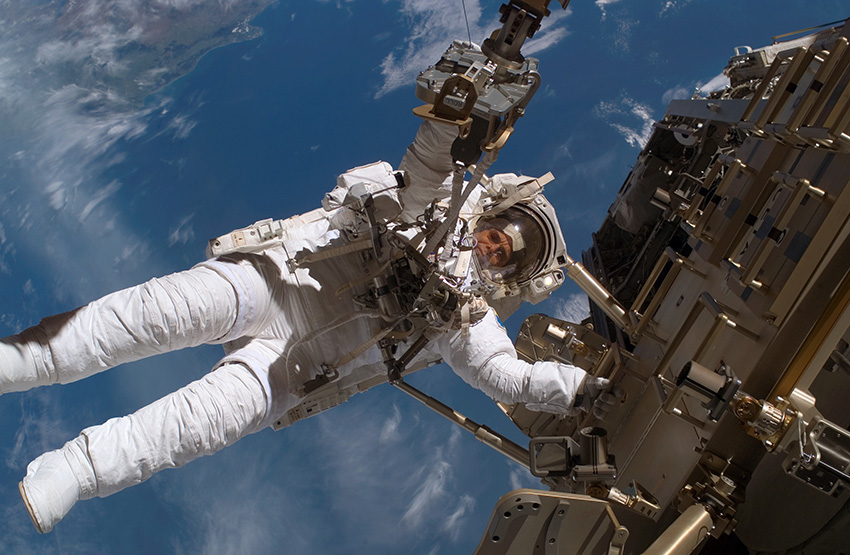Online course on spaceflight returns with certification for participants
Learn about human space travel from an experienced ESA astronaut who flew on Space Shuttle Discovery to conduct research on the International Space Station.

A unique online course led by Sweden’s history-making astronaut Christer Fuglesang is offering students the chance to learn from a personal perspective on space travel, and earn a certificate.
Human Spaceflight: An Introduction is a massive open online course (MOOC) from KTH Royal Institute of Technology. The five-week programme begins on Monday January 23.
Participants will gain an understanding of the technical challenges, history, science, medical effects, and political and economic aspects of human spaceflight. But the star attraction is the instructor. European Space Agency astronaut Christer Fuglesang is Sweden’s first person in space, with two Space Shuttle missions and five spacewalks under his belt. He is also Adjunct Professor and Director of KTH’s Space Centre, and is passionate about space travel’s benefits.
“Human spaceflight matters because it inspires people, it challenges us, and it forces us to develop new technologies which later find applications on Earth, helping us to solve problems. In the long run it will give humanity other places to live than the only planet we have now. We go to space to make living on Earth better!”
It’s the second year of the programme, but this time a certificate is available at the end, which should appeal to anyone seeking to advance professionally or academically, while obtaining an interesting addition to their CV. It’s further proof of KTH’s world-leading commitment to research and education in the aerospace industry and connected sectors, as well as in natural and space sciences.

Teaching assistant Agnes Gårdebäck says, “No matter if you already know a whole lot about human spaceflight or if you are completely new to the subject, you can learn a lot in this course. It gives a broad understanding and whenever you find a specific topic interesting you can always turn to the discussion forum with questions and get help on where to find more information. Tell us what you hope to gain from this course and we will be happy to help.”
Also worth noting is a course workload that is, relatively-speaking, gravity-free. Online lessons take about 45 minutes a week, with a typical commitment of two to three hours a week, including homework and quizzes. “I think you will enjoy it,” Fuglesang says. “And if you’re interested in any job relating to this area, the course is helpful.”
Kristina Šekrst, a previous participant, agrees. Commenting on the edX course’s description page, she wrote: “It’s a nice course, dealing with space environment, vehicles, medical aspects and research, and astronaut training. It provides a lot of useful information even for professionals, since it tends to connect interdisciplinary data.”
Plus, it’s the chance to hear from someone who was actually there. “First-hand stories always have a bigger impact,” Fuglesang says. “Anyone can say what they want about human spaceflight, but as ESA´s former Director General Dordain said – astronauts are the witnesses who have seen Earth from space and they have the responsibility to share this.
What you’ll learn
- Historical overview of human space travel
- Political, economical and community perspective of human space travel
- The space environment
- Human space vehicles and their requirements including space launchers, space shuttles, and space stations
- Medical aspects of space travel
- Life-sustaining systems on space vehicles
- How the International Space Station (ISS) was built and is operated
- Research in zero gravity at the International Space Station (ISS)
- Astronaut selection and training
- Future of space travel and new frontiers
Andew Montgomery
